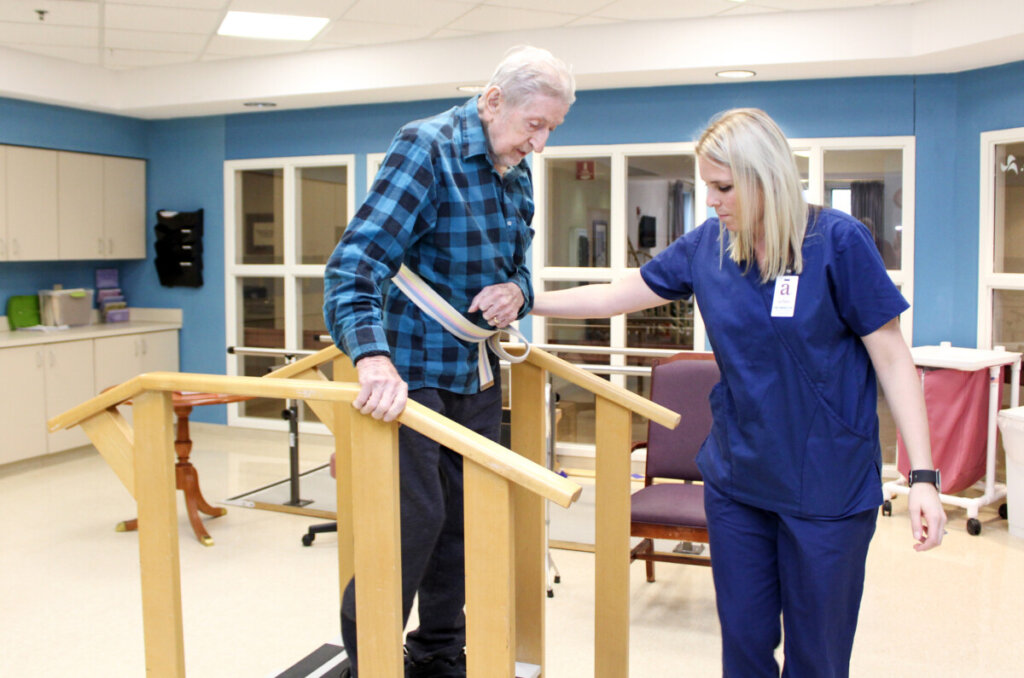Physical, Speech & Occupational Therapy

Hospice care is designed to support patients with life-limiting illnesses, providing them with comfort, dignity, and the highest possible quality of life during their end-of-life journey. In addition to medical care and emotional support, many hospice programs also offer a range of therapy services, including physical, speech, and occupational therapy. These therapies are tailored to the unique needs of each patient and aim to improve their overall well-being and quality of life. This article will explore the comprehensive therapy services provided by hospices, highlighting the importance of these services for patients and their families.
Physical Therapy in Hospice Care
Physical therapy plays a vital role in hospice care, focusing on maintaining and improving patients’ mobility, strength, and overall physical function. Physical therapists work closely with the hospice care team to develop individualized treatment plans that address each patient’s unique needs and goals. Key aspects of physical therapy in hospice care include:
Pain Management
Physical therapists employ various techniques, such as gentle exercises, stretching, and manual therapy, to alleviate pain and discomfort associated with patients’ conditions.
Mobility and Safety
Physical therapists work with patients to improve their mobility, balance, and coordination, reducing the risk of falls and injuries. They also provide recommendations for assistive devices, such as walkers or canes, to enhance patient safety and independence.
Energy Conservation Techniques
Physical therapists teach patients and caregivers energy conservation techniques, helping patients maintain their functional abilities while minimizing fatigue.
Speech Therapy in Hospice Care
Speech therapy is a valuable service for hospice patients who experience difficulties with communication or swallowing. Speech therapists assess patients’ needs and develop customized treatment plans to address these challenges. Key aspects of speech therapy in hospice care include:
Communication Enhancement
Speech therapists work with patients to improve their verbal and non-verbal communication skills, enabling them to express their needs, preferences, and emotions more effectively.
Swallowing Assessment and Management
Speech therapists evaluate patients’ swallowing function and provide recommendations for safe and comfortable eating and drinking. They may also suggest modifications to food texture or consistency, as well as strategies for optimizing swallowing safety.
Augmentative and Alternative Communication (AAC)
For patients with severe communication difficulties, speech therapists may introduce augmentative and alternative communication systems, such as communication boards or electronic devices, to facilitate effective communication.
Occupational Therapy in Hospice Care
Occupational therapy focuses on helping hospice patients maintain their independence and engage in meaningful activities during their end-of-life journey. Occupational therapists collaborate with the hospice care team to identify patients’ needs and develop individualized interventions. Key aspects of occupational therapy in hospice care include:
Activities of Daily Living (ADLs)
Occupational therapists work with patients to maintain or improve their ability to perform essential daily tasks, such as dressing, bathing, and eating, promoting their independence and dignity.
Adaptive Equipment and Environmental Modifications
Occupational therapists may recommend adaptive equipment, such as grab bars or raised toilet seats, and suggest environmental modifications to improve patients’ safety and independence in their living environment.
Leisure and Social Activities
Occupational therapists help patients identify and engage in meaningful leisure and social activities, enhancing their overall quality of life and well-being.
Cognitive and Emotional Support
Occupational therapists provide strategies and interventions to support patients’ cognitive and emotional well-being, addressing challenges such as memory loss, anxiety, or depression.
Family and Caregiver Training
Occupational therapists often provide education and training to family members and caregivers, empowering them with the skills and knowledge necessary to support their loved one effectively during the end-of-life journey.
Palliative and End-of-Life Care Support
In the context of hospice care, occupational therapists collaborate closely with other healthcare professionals to provide comprehensive, patient-centered care that addresses the physical, emotional, and spiritual needs of patients and their families.
Occupational therapy is a crucial component of hospice care, helping patients maintain their independence, engage in meaningful activities, and receive support for cognitive and emotional challenges during their end-of-life journey. By addressing the unique needs of each patient and working closely with the hospice care team, occupational therapists significantly contribute to the quality of life for patients and their families in hospice care.
Recent Articles
Lorem ipsum dolor sit amet, consectetur adipiscing elit, sed do eiusmod tempor incididunt ut labore et dolore magna aliqua. Ut enim ad minim veniam, quis nostrud exercitation ullamco laboris nisi ut aliquip ex ea commodo consequat.
Volunteers: The Unsung Heroes of Hospice Care
While healthcare professionals play a critical role in hospice care, volunteers are the unsung heroes who provide a wide range of essential services to patients and their families.
Vital Role of Social Workers in Hospice
Social workers can provide critical support and resources to make the process more manageable. Understanding the role of social workers can help you or your loved one make the most of the available services and resources.
Key Pillars of Bereavement Support for Families and Caregivers
Seek bereavement support to cope with the loss of a loved one. Key pillars of support include grief counseling, support groups, memorial services, and education/resources. Remember to be patient and kind to yourself.



